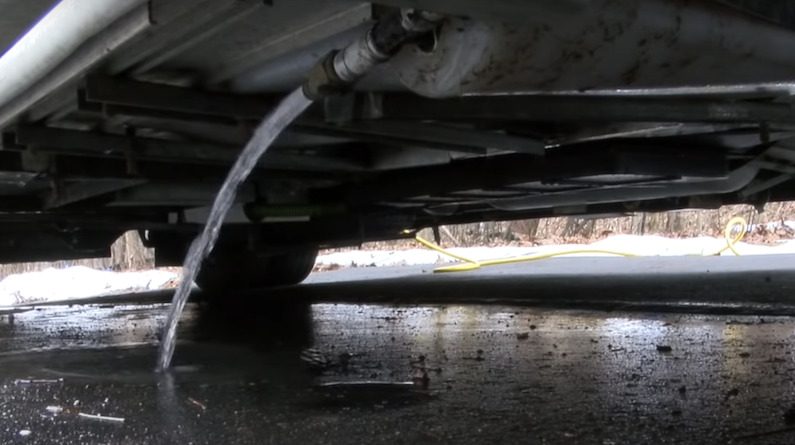The RV fresh water tank is an important part of your recreational vehicle. It stores and holds all the fresh water that you need for drinking, doing dishes, taking showers, and flushing toilets. Without it, you wouldn’t be able to take advantage of all the amenities provided by your RV. However, if the tank isn’t maintained properly, it can become a breeding ground for bacteria which can make you sick. This is why it is important to regularly clean and sanitize your RV fresh water tank.
Why do I need to Sanitize my RV Fresh Water Tank?
Sanitizing your RV’s fresh water tank helps protect against harmful bacteria that could potentially cause gastrointestinal issues and other illnesses. To sanitize your RV’s fresh water tank, you will need to use a chlorine bleach solution, which can be created by mixing ¼ cup of regular household bleach with one gallon of warm water.
Before Sanitizing RV Fresh Water Tank you need to know how to drain RV fresh water tank.
How Do I Sanitize my RV Fresh Water Tank?
To begin the process of sanitizing your RV’s fresh water tank, first make sure that it is completely empty. Once empty, add the solution of bleach and water to the tank and fill it up until it is around half full. Turn on all faucets and exterior shower heads to allow the mixture to flow through them and fill in any low spots. Allow the mixture to sit for at least fifteen minutes before draining.
After the mixture has been in the tank for the allotted time, drain it fully and rinse the tank a few times with clean water to make sure all bleach is removed and there aren’t any lingering odors or tastes. Finally, fill your RV fresh water tank back up with fresh water, turn on all faucets again, and leave them open until all of the lines have flushed out. This will ensure that no remaining traces of chlorine are left behind.
What are some common problems with the RV fresh water tank system?
One of the most common problems with RV fresh water tanks is clogging. Over time, minerals and calcium can build up in the tank, reducing the flow of water. To prevent this from happening, you should periodically flush out your system using a cleaning solution specifically designed for removing build-up. Additionally, make sure to keep an eye on your RV’s hoses and connections as they are also prone to becoming clogged or blocked. Regular maintenance will help ensure that your RV fresh water tank stays clean and functional.
How to troubleshoot and fix common problems with the RV fresh water tank system
If you are having a problem with your RV fresh water tank system, it is important to quickly identify and fix the issue. The first step should be to examine all of the hoses and connections for any signs of leaks, blockages, or other damage. If any damage is identified, repair or replace the parts as necessary.
If this does not solve the problem, check to see if the tank itself is properly sealed. If there are any gaps or cracks in the tank that allow water to escape then these must be repaired before continuing with other troubleshooting steps.
If there are no visible issues with seals or connections, you may need to clean out your RV fresh water tank using a cleaning solution specifically designed for use on RV tanks. This will help remove any built-up minerals and calcium deposits that may be clogging the system. Finally, flush out the tank a few times with clean water to make sure no cleaning solution is left behind before refilling and using it again.
By taking some time to maintain your RV’s fresh water tank, you can ensure that your recreational vehicle stays in perfect condition for years to come. Regularly sanitizing, troubleshooting issues, and performing maintenance will ensure that your RV’s fresh water tank system continues to work properly and safely for as long as possible.
By following these simple steps, you can help keep yourself and your family healthy by ensuring the quality of the water stored in your RV’s fresh water tank. Sanitizing and properly maintaining the system will provide you with peace of mind that your recreational vehicle is well taken care of. So be sure to take the time to sanitize, troubleshoot, and maintain your RV fresh water tank on a regular basis!

